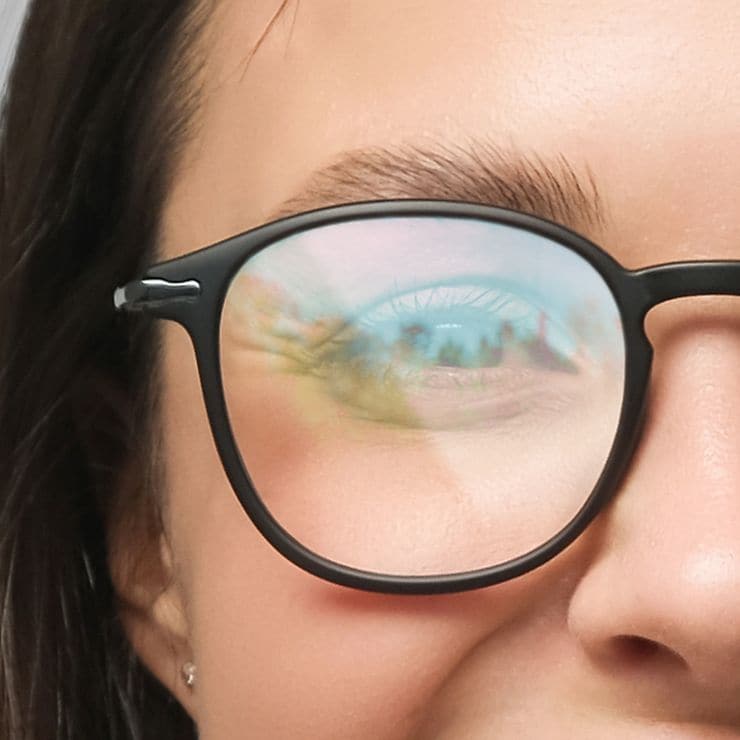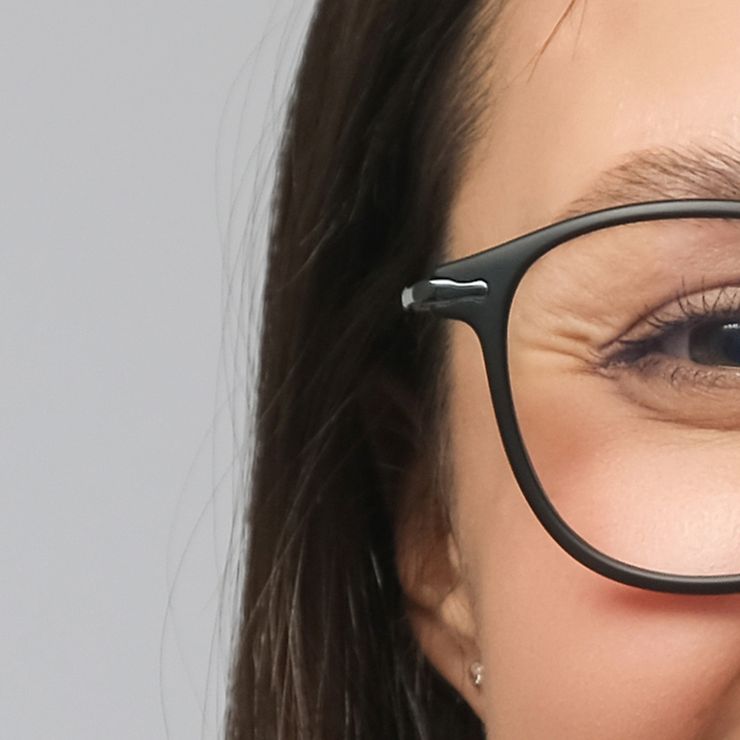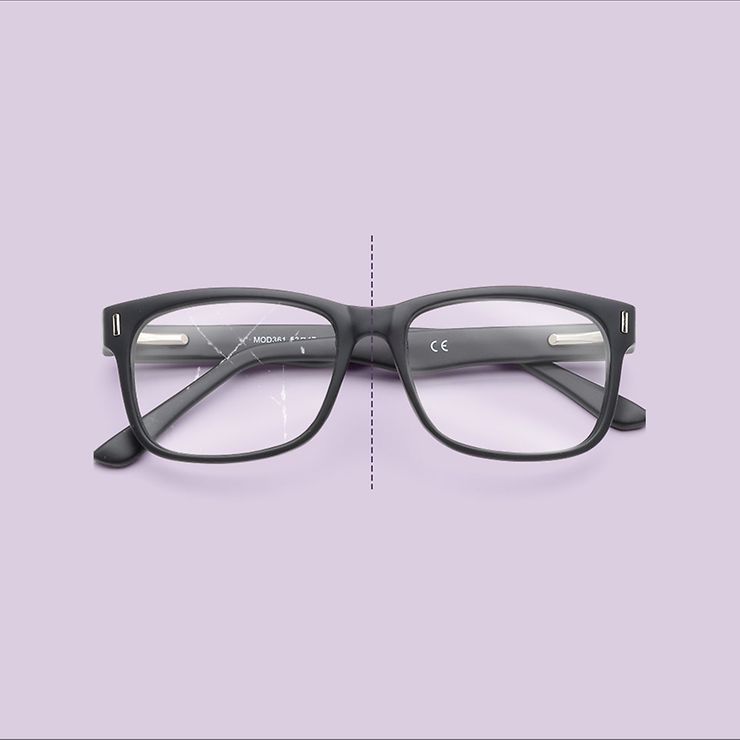C Shield coating
A six-in-one lens coating solution. These factors work together to keep your glasses cleaner, stronger, and smarter – so you can focus on all the things in front of you.
A six-in-one lens coating solution. These factors work together to keep your glasses cleaner, stronger, and smarter – so you can focus on all the things in front of you.
Easily wipe your lenses free of dust and lint. C Shield reduces static electricity buildup on the lens surface, decreasing dust accumulation.
No more worries when walking in the rain! C Shield's hydrophobic lens coating means water droplets won’t stick to your lenses.
Grease and dust are repelled from the lens surface, keeping your lenses cleaner for longer.
C Shield contains scratch-resistance, which improves durability and makes your lenses last longer.
Anti-reflective coating eliminates ghost images as well as reduces eye-fatigue from fluorescent lighting and driving at night.
C Shield uses a flexible adhesive that makes the lens coating less susceptible to cracking and peeling.
Anti-reflective coating
Anti-reflective lenses are designed to minimize distracting reflections and glare on the surface of the lens to improve vision and comfort.

•Unattractive reflection on the surface of the lens
•Irritating glare causes reduced vision clarity and eye strain, making it difficult to see in some conditions

• Look great with no unattractive or distracting glare on lens surface
• More visual comfort in all lighting conditions for clearer, safer vision
Additional lens coatings
Keep your lenses clear throughout the day and maintain their quality over the long-run.

Fights condensation quickly, so they’ll clear almost instantly after a temperature change causes them to fog up.
Please note that anti-fog lenses don’t include anti-reflective properties.

Creates a harder lens surface, more resistant to scratches and protected against everyday wear and tear.
All of our lenses come with scratch-resistant coating.
Add to any frames, with or without prescription. Compatible with single vision, Standard Progressives, and Premium Progressives.
Having an anti-reflective coating minimizes reflection and glare, reducing eye strain and allowing for clearer and more comfortable vision. It’s especially helpful in highly reflective conditions such as driving at night.
Anti-reflective coating also reduces reflection on the surface of your lens, so people who are looking at you can see your eyes more clearly. Lenses without anti-reflective coating can create distracting and unattractive reflections.
There’s no way to make lenses completely scratch-proof. Scratch-resistant coating will help to strengthen the surface of your lenses and improve durability, so they’re less likely to get scratched or damaged if you accidentally drop them or rub them against an abrasive material.
Adopting smart care habits is the best way to maintain the quality of your lenses. Store them in a cushioned case when you're not wearing them. When cleaning them, use a microfibre cloth (never paper towel, your t-shirt, or any other type of rough fabric) and lens cleaning solution or mild dish detergent.
While most lens manufacturers offer anti-reflective coatings, the performance and durability vary.
Top performers in coatings change their composition slightly for each type of lens material that they’re applied to — this is called “index matching”. It increases a stronger bond and better durability under harsh temperature conditions. Our premium C Shield coating is index-matched to the specific lens material you choose.
Adding an anti-glare coating after you've already purchased your glasses is not recommended for the following reasons:
It could cost more and affect quality: Since the coating application technology requires a coating to be added at the time that the lens is cut, it could cost more to apply it after purchase and you may not get the same quality.
Your lenses are not factory “fresh” anymore: Once your lenses have been exposed to skin oils, the coating may not stick well, which could defeat its effectiveness and longevity.
Scratches on lenses could be magnified: If there’s a scratch, applying the coating will magnify it.